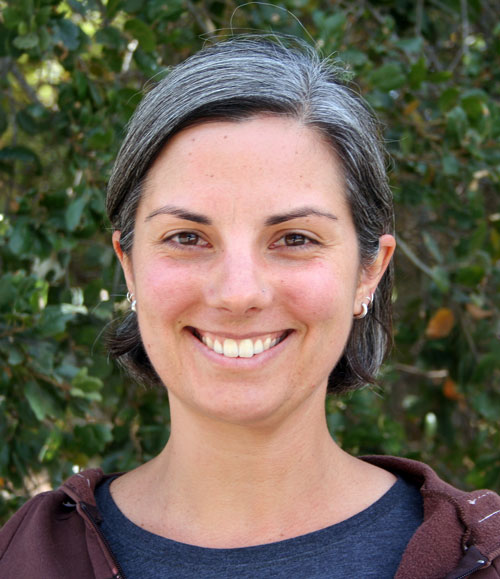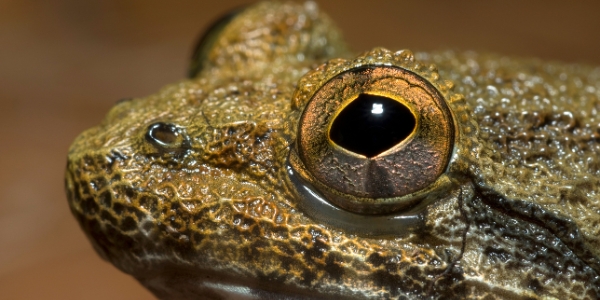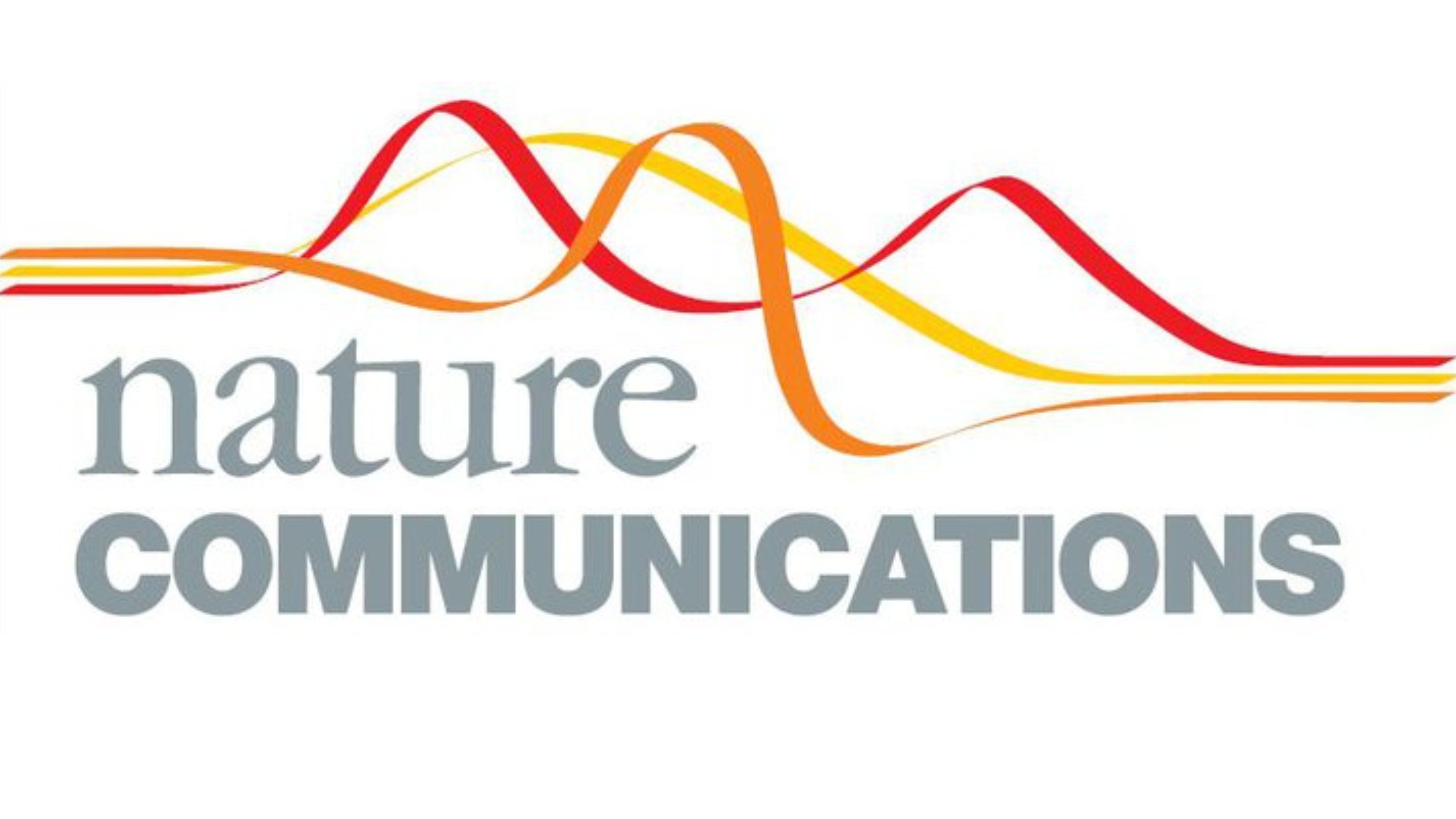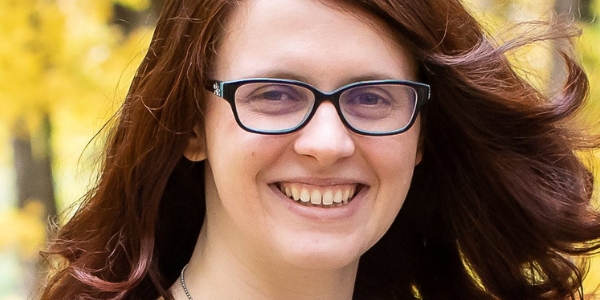Dahlin launches spectral ecology field school
As Natalia L. Quinteros Casaverde was scrolling through messages last fall on the social media platform formerly known as Twitter, a post from EEB core faculty member Kyla Dahlin immediately

set her heart aflutter. Dahlin, an associate professor with the Department of Geography, Environment and Spatial Sciences at Michigan State University, was using the platform to introduce the Spectral Ecology Summer School (SPEC School), a brand new initiative she was spearheading aimed primarily at graduate students and early postdoctoral researchers interested in not only incorporating remote sensing tools into their ecological research but also gaining valuable training in inclusive leadership.
"I knew right away that SPEC School was just the opportunity I had been looking for to better incorporate remote sensing data into my research. I am especially interested in the spectral taxonomy and ecology of plants, and I felt this kind of data could add so many new and important layers to my research," said Quinteros Casaverde, a researcher at the New York Botanical Garden who recently earned her Ph.D. from the Graduate Center at the City University of New York and the New York Botanical Garden. "As a member of the Latinx community, I also felt that the focus on diversity, equity, and inclusion would really give me an opportunity to talk to people about things I'm not always able to in my everyday work and research activities. And, I was happy that those discussions enriched my experience, helped me feel part of an extended community, and gave me hope for the future."
Inspired by other ecologically-focused summer courses such as FluxCourse, IsoCamp, and the Complex Systems Summer School, Dahlin knew she wanted SPEC School to provide participants with hands-on experience in field and imaging spectroscopy, lidar and other airborne remote sensing products available from the National Ecological Observatory Network's Airborne Observation Platform (NEON AOP). "Across the sciences, however, I've found that early career researchers are not always prepared well for the leadership roles they are expected to take on as researchers, professors, or wherever their paths may lead," said Dahlin. "That's one of the reasons I wanted another core goal of SPEC School to be about building a leadership toolbox to enable an inclusive 21st-century environmental data science workforce."
For participants like Jocelyn Navarro, a Ph.D. candidate at the University of Arizona, Dahlin's vision of combining leadership training with highly technical scientific research was a welcome addition. "This experience was life-changing and provided me with skills and confidence to apply remote-sensing techniques to my dissertation work," said Navarro. "I also learned other skills that will allow me to become a faculty member that truly cares and takes intentional steps to make Ecology a more equitable and diverse science."
Ny Aina Rakotoarivony, a Ph.D. student in Geography at Oklahoma State University, found that SPEC School was an excellent opportunity to learn more about using geospatial technologies to answer complex ecological questions such as the impact of plant invasions. While applying to SPEC School, Rakotoarivony was excited by the activity descriptions. "But the experience was much more than I had expected," said Rakotoarivony. "I learned a lot about remote sensing data analysis, collecting leaf-level spectroscopy data, and how to conduct fieldwork in forest ecosystems. Beyond the academic part, however, I also learned a lot about leadership, data science, teamwork, and just myself as a researcher."
SPEC School is currently funded primarily through a National Science Foundation (NSF) CAREER award that Dahlin received in 2021 from the Division of Environmental Biology Ecosystems Science Program. Among NSF's most prestigious, such CAREER awards support early-career faculty who have the potential to serve as academic role models in research and education and to lead advances in the mission of their department or organization.
"I am grateful for the funding from NSF and additional sponsors such as Spectra Vista Corporation (SVC) and our generous individual donors. With these dollars, we were able to fully fund 15 participants this past summer and believe we can continue to do so for at least two more years," said Dahlin. "Of course, our goal is to continue SPEC School well into the future, and we hope to find new ways to offset costs for participants as much as possible when our current funding runs out."
The NSF grant pays for supplies, equipment, instructors, housing, meals, and travel to the University of Virginia's Mountain Lake Biological Station (MLBS), where the week-long in-person experiences take place. "We chose MLBS because it's a remote, but still accessible, field site," explained Dr. Adriana Uscanga, a postdoc with MSU Geography and MSU's Institute for Biodiversity, Ecology, Evolution, and Macrosystems (IBEEM) and the assistant director for SPEC School. The station is located in the Appalachian Mountain Chain in southwestern Virginia and is situated on the elevated divide between the Atlantic and Mississippi drainage basins. "It's also characterized by abrupt changes in environmental gradients and fine-scale variances in ecological niches, making it an excellent research location. But, probably most importantly, MLBS is part of the National Ecological Observatory Network, or NEON for short."
NEON is a network of sites that collect massive amounts of long-term, open-access ecological data. Such data is invaluable to ecologists working to better understand how ecosystems are changing across the U.S. to address some of the most pressing issues we are facing on our ever-changing planet.
"We are looking forward to welcoming a new SPEC School cohort at this unique and special research site next summer," said Dahlin. "We are also hoping for better weather. Unfortunately, it rained the entire time we were there, which definitely impacted our planned field activities. But I was so pleased how everyone was willing to be flexible and dedicated to pressing on to conduct valuable research indoors."
Applications for the 2024 SPEC School are open now through December 23, 2023. The in-person session of SPEC School is scheduled for June 16-22, 2024. While SPEC school is aimed at researchers interested in utilizing remote sensing tools, prior experience with remote sensing is not required. There are also no citizenship restrictions, but international participants will need to fund their travel into the U.S. For more information and application details, visit www.specschool.org.
Read the full story in the Department of Geography, Environment, and Spatial Sciences.



